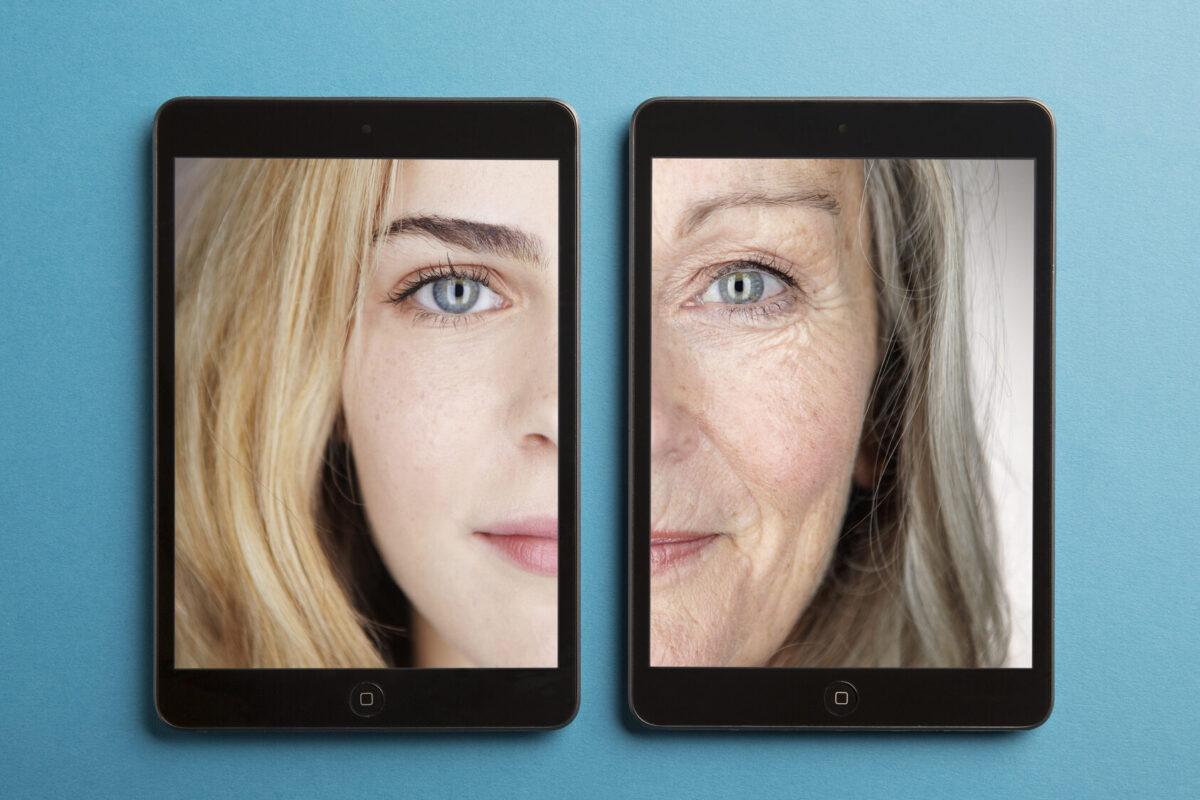[ad_1]

Did you know that your body can age at a different pace to how many birthdays you’ve celebrated? Well, scientists in China have now worked out a new way to measure this ‘biological age’, and it could help to speed up anti-ageing treatments.
The new approach involves the analysis of 3D images of your body parts using artificial intelligence. Specifically, images of your face, tongue, and retina (the layer of cells at the back of your eye that converts light into signals for your brain).
While chronological age represents the number of years you have been alive, your biological age represents how worn the cells in your body are. This rate will vary for different people, meaning that, for many of us, our biological and chronological ages are different.
Usually, scientists estimate biological age through ‘epigenetic clocks’. This is generally determined through the study of levels of methylation – or chemical changes – in your DNA. Previously, biological age was calculated mainly through DNA or blood tests, alongside brain scans.
To create an accessible yet accurate prediction of biological age, the scientists built a model that uses AI to combine facial, tongue and retina images. Pictures of the face can indicate skin health, while your tongue reveals how healthy your microbiome is and your retinas can signal the health of your neurological and cardiovascular systems.
“The fact you can [estimate biological age] with photographs of, among other things, people’s faces, gives scientific rigour to a common intuition that some people can look older or younger than their age,” longevity expert Andrew Steele, who was not involved in the study, told BBC Science Focus.
However, as the new research – published in the Proceedings of the National Academy Of Sciences (PNAS) – points out, individual systems measured by photographs alone may not be helpful markers of biological age on their own. But, as the scientists point out, such images still provide some insights, and are cheaper, easier and less invasive than DNA, blood tests or brain scans.
The researchers, from Macau University of Science and Technology and Shanghai Jiaotong University, both in China, first tested the model on 11,223 healthy people.
They then applied it to 2,840 individuals who were suffering from chronic diseases. The model revealed that the biological ages of these individuals were significantly higher than their chronological ages compared to the healthy individuals.
In the future, the tool could become a helpful estimation of the impacts of chronic diseases on ageing, and vice versa.
According to Steele, the next big question is “how these measures of biological age are affected by anti-ageing interventions – whether that’s diet and exercise, or a new longevity pill.”
He added: “If we can assess their effectiveness with photographs, in the future we may be able to speed up clinical trials dramatically by using before-and-after photos to assess whether an anti-ageing therapy works.”
About our expert
Dr Andrew Steele is a scientist, writer and presenter. He is the author of Ageless: The New Science of Getting Older Without Getting Old. After completing a PhD in Physics, Steele decided to make the unusual leap to biology and has used computers to decode our DNA at the Francis Crick Institute in London.
Read more:
[ad_2]
Source link